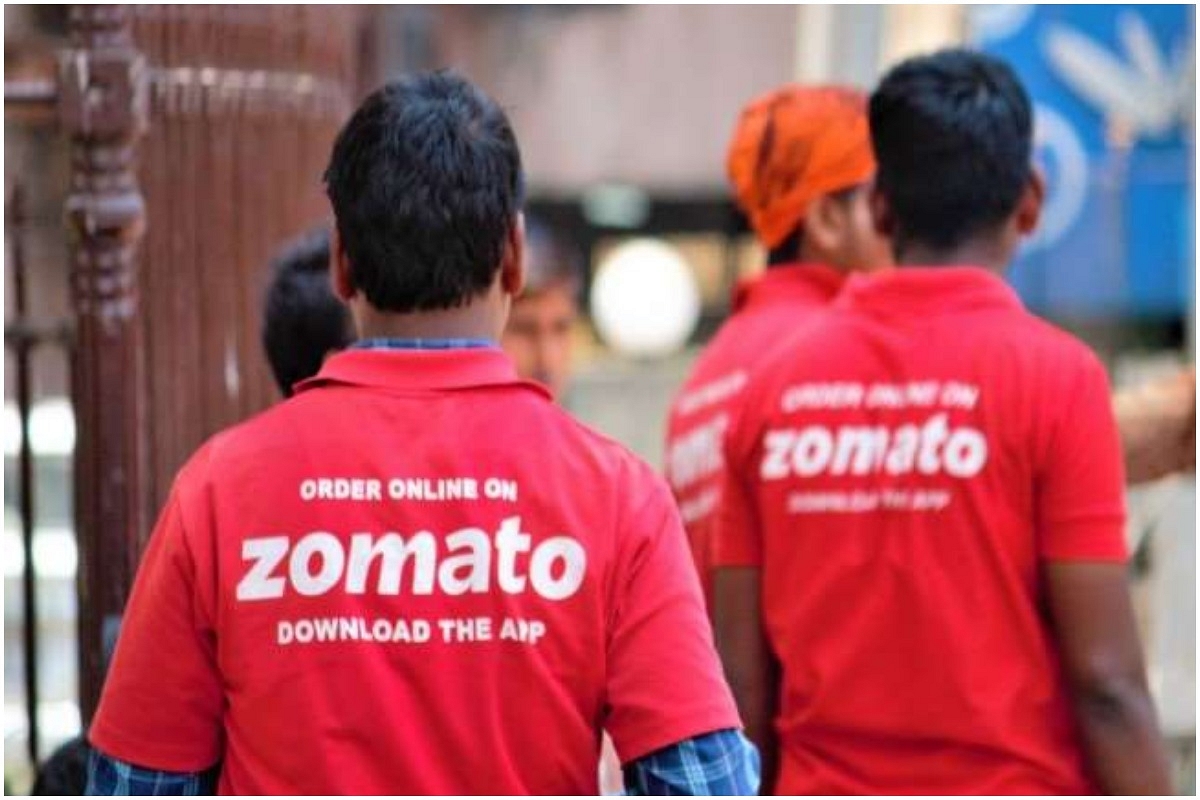Business
Why GST On Food Delivery Operators Will Be A Right Move
- The truth is it is much easier for the government to deal with a Zomato or Swiggy, than with thousands of restaurants dotting India's town and cities.

Zomato food delivery
According to this report, the 'GST Council on September 17 referred the issue pertaining to the tax to be levied on online food aggregators such as Swiggy and Zomato to the group of ministers'. Online food-delivery operators such as Swiggy and Zomato may have to pay goods and services tax (GST) on restaurant services supplied through them should the group o of ministers (GoM) decide to crack the whip.
Estimating GST losses of Rs 2,000 crore in 2019-20 and 2020-21, the fitment panel recommended that food aggregators be classified as e-commerce operators and pay GST on behalf of the restaurants concerned. Many restaurants are not depositing GST, while some are not even registered.
E-commerce platforms like Flipkart and Amazon are marketplaces where anyone can offer his wares for sale. Flipkart and Amazon are only facilitators under this model who charge their commission for their services that includes a robust IT infrastructure and payment gateways. While the law has mandated them to deduct 1 per cent as GST at source in addition to their own commission, the onus of compliance with the GST law is on the sellers and not on these platforms.
Coming back to food delivery operators, the problem is that they have smugly assumed that since what they facilitate is the lowly or routine food items on which GST in any case is just 5 per cent, there won’t be much insistence on full compliance. In other words, the full heat of the law would not be brought upon them in case of non-compliance. But the GST Council has done well to quantify the potential loss and turn the heat on them by not affording them the alibi of marketplace.
There was no reason why a regime akin to the one obtaining for e-commerce platforms could not have been extended to food and medicine delivery operators as well. No seller cannot board the Amazon or Flipkart bandwagon without a GST registration, whatever the turnover. As of now, the general threshold limits for sellers of goods is Rs 40 lac and for services Rs 20 lac but as part of the KYC norms, e-commerce platforms insist on registration. In addition they are also mandated to deduct 1 per cent TCS from the sales of each seller.
That a stricter regime vis-à-vis e-commerce platforms are being contemplated has perhaps something to do with the government’s keenness in cashing in on food delivery boom as well as to prevent tax evasion.
One of the ways to frustrate tax evasion is to ask one single person to pay up and leave to him how he in turn collects the amount from others down the line. To wit, securities transactions tax (STT) is a tax collected from BSE and NSE, period. Of course it travels up from customers to brokers and from brokers to the stock exchange. But it is easy to collect tax from one person rather than from thousand of brokers or millions of their customers. The same logic applies to restaurants. Let Zomatoes and Swiggies of the world be made accountable.
What it boils down to finally is that the government is in no mood to indulge the delivery operators by giving them the status of marketplace. It would rather make them liable for the GST liabilities of the restaurants selling through them.
This may seem to be discriminatory but the truth is it is much easier for the government to deal with a Zomato or Swiggy rather than with thousands of restaurants dotting India's town and cities. The record of compliance by restaurants, especially the smaller ones, vis-à-vis small traders, seems to be less than satisfactory.
While Swiggy and Zomato would intuitively take the extra burden on their chin, small restaurants might also take the extra deduction of 5 per cent GST (which pales before the generous chunk of about 20 per cent forked out to the delivery operators) in their strides.
Support Swarajya's 50 Ground Reports Project & Sponsor A Story
Every general election Swarajya does a 50 ground reports project.
Aimed only at serious readers and those who appreciate the nuances of political undercurrents, the project provides a sense of India's electoral landscape. As you know, these reports are produced after considerable investment of travel, time and effort on the ground.
This time too we've kicked off the project in style and have covered over 30 constituencies already. If you're someone who appreciates such work and have enjoyed our coverage please consider sponsoring a ground report for just Rs 2999 to Rs 19,999 - it goes a long way in helping us produce more quality reportage.
You can also back this project by becoming a subscriber for as little as Rs 999 - so do click on this links and choose a plan that suits you and back us.
Click below to contribute.
Latest